May 31, 2025 | 04:20 GMT +7
May 31, 2025 | 04:20 GMT +7
Hotline: 0913.378.918
May 31, 2025 | 04:20 GMT +7
Hotline: 0913.378.918
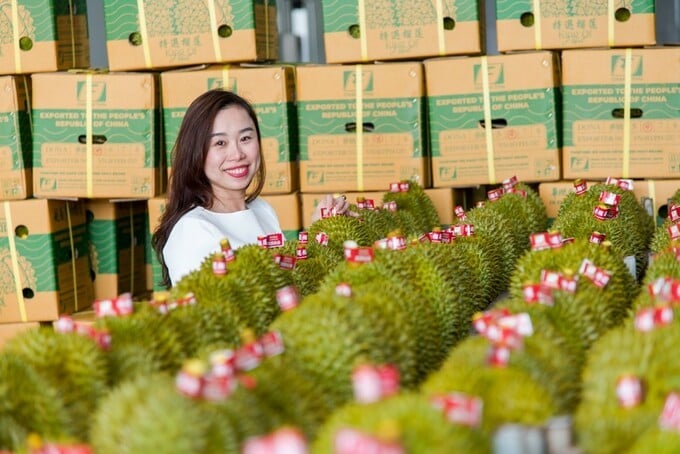
CEO of Chanh Thu Ngo Tuong Vy. Photo: NTV.
Participating in opening the Chinese market with durian, coconut, passion fruit products, and green-skinned pomelo in the coming time, Ms. Ngo Tuong Vy, General Director of Chanh Thu Fruit Import-Export Group Joint Stock Company, shares: For the Chinese market, only by building product quality and brand can we do long-term and sustainable business.
Regarding the story of thinking about the Chinese market, up to now, most Vietnamese people have had a very different mindset about the Chinese market, from potential and advantages to quality standards and long-term, sustainable cooperation strategies. We have understood the market better to change our thinking and perfect product quality standards, thereby enhancing the value and brand of Vietnam's agricultural products.
The Ministry of Industry and Trade and the Ministry of Agriculture and Rural Development jointly organized the Vietnam Fruit Festival in Beijing, China on September 29-30 with the theme "Vietnamese fruits - Four seasons of deliciousness.".
Taking durian fruits as an example. Just a few years ago, when mentioning durian, consumers only thought of Thailand and Malaysia. Even for a long time, our durian accepted unofficial routes or "detours" through Thailand to be able to access the Chinese market. That forced us to accept the reduction in production value and brand and endure many disadvantages. However, since being allowed to officially export to the Chinese market, it has opened up huge opportunities and helped Vietnamese durian really explode in this market.
Feedback from customer partners from the Chinese market about durian in this year's crop shows that the product quality and design of Vietnamese durian are not inferior to Thai products. Some of our good brands have been able to sell at equal prices and are even assessed by consumers as having many superior advantages compared to Thai products, of which we have never dared to think before.
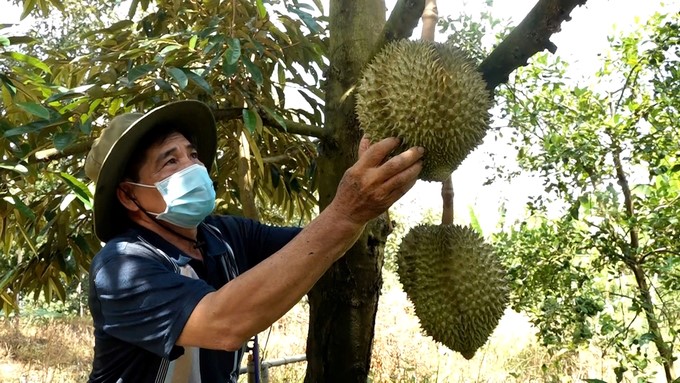
Vietnamese durian will continue to boom in the Chinese market. Photo: Hoang Anh.
In the Chinese market, the market share of Vietnamese durian doubles that of Thai durian. Chinese consumers know, trust, and prefer Vietnamese products more. These are positive signals, affirming the quality and brand of durian in particular and agricultural products of Vietnam in general in this market.
When we have changed the previous mindset of "easy-going Chinese market" and "cheap-priced mid-range market" into "an extremely potential market" for Vietnam's agricultural products, especially high-quality products, quality and brand will be a mandatory path.
Based on hands-on practice and research on the Chinese market, I think that China is the most potential market to consume Vietnam's high-quality agricultural products. If we compare the consumption trends of the Chinese market with the US market and the European market, we can clearly see that Chinese consumers are willing to spend a lot of money on products that they have experienced and trusted.
This shows that Chinese consumers only care about quality and brand. In other words, quality and brand are the two most important factors that are deeply ingrained in the minds of Chinese consumers.
Therefore, I think that the lesson of durian in particular and Vietnam's agricultural products in general in the Chinese market is always the story of building quality and branding. Chanh Thu's strategy in this market also focuses on those two factors. Building a linkage chain, cooperating together, and connecting with the business community to build a national brand for Vietnam's agricultural products so that Vietnam's agricultural products keep the first position in the Chinese market.
In the near future, we focus on the most advantageous and highest value, which is durian. What must be done is to make more and more Chinese people know about the Vietnam Durian brand and form the consumption habit in this market that Vietnamese durian is very delicious and No. 1 choice of Chinese people. To do that, we are forced to take over the trust and preference of Chinese consumers for our agricultural products by the quality and brand of our products.
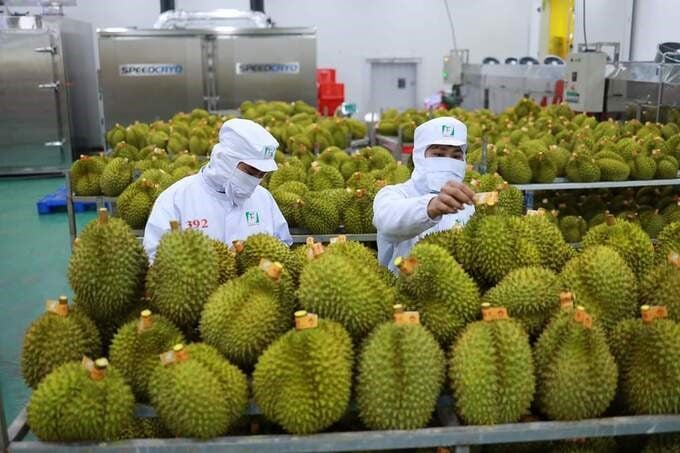
Building a national brand for Vietnamese durian. Photo: NTV.
In the future, with the general story for other Vietnam's agricultural products, I think we need to establish and go deeper into target products that bring high economic value. It is necessary to have a clear directional strategy and screening of target products with many competitive advantages to ensure the harmonization of benefits of all stages in the production chain in a truly long-term and sustainable way.
Second, special attention needs to be paid to the role of state management in the issue of agricultural product quality. Management agencies need to have strong enough sanctions to manage the quality of Vietnam's agricultural products. In my opinion, we have enough dissemination, advocacy, and calling for a change in consciousness and thinking. Now there needs to be legal regulations on the quality of Vietnam's agricultural products. Especially for the durian story, I think that with the current boom and the output and export turnover within the next 3 years, specific solutions and stricter management from the State will be needed.
Finally is the story of building a national brand, promoting the image of the country and people of Vietnam through the image of Vietnamese agricultural products, not only at this festival in Beijing but also in many other places and markets. There needs to be a national strategy on market research for Vietnamese agricultural products. Of which, emphasize the role of research, survey, and orientation of ambassadors, counselors, trade offices, etc., and the Vietnamese community in other countries. Combining product quality and community cooperation, I believe that the national brand story for Vietnam's agricultural products will be successful.
Exchanging with Vietnam Agriculture Newspaper, Mr. Nguyen Thanh Tung, Deputy General Director of Dong Giao Foodstuff Export Joint Stock Company (DOVECO), commented: China is a big country, with a large population and customs that are quite similar to Vietnam. The product consumption demand is diverse with large quantities, especially agricultural and food products. Due to geographical characteristics, some areas in China cannot have some crops like in Vietnam, or if they have, they cannot meet the very high demand in the country. This is an extremely big opportunity for Vietnam’s agricultural products in this market."
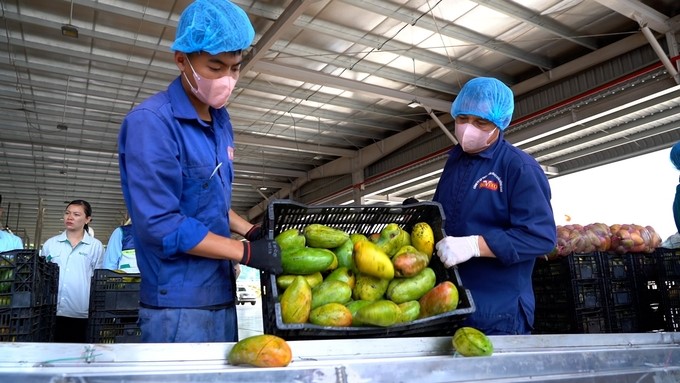
Processing mangoes for export at DOVECO. Photo: Hoang Anh.
First of all, talking about the potential and advantages of the Chinese market, the most obvious is the geographical location of the two neighboring countries, which is favorable for stable logistics and transportation costs not strongly affected by the war in Eastern Europe, the Middle East, and especially events in the Red Sea area through the Suez Canal.
Goods are shipped to the Chinese market quickly, usually taking only 7–10 days compared to 40–45 days to go to main ports in Europe. Therefore, customers from China will also pay faster, creating an advantage for businesses to rotate production quickly and in larger quantities.
Second, regarding lessons in the Chinese market, DOVECO's practice shows that the previous notion that China is an easy-going market is no longer appropriate. To export agricultural products in particular and goods in general to China, product quality must be guaranteed and must meet strict requirements from inspection agencies, customer partners, and consumers. For that reason, DOVECO's strategy must also change.
Previously, we focused on exporting to EU countries, the U.S., Japan, etc. However, in recent years, we have realized that China is a very potential market and has much greater advantages compared to other markets. Therefore, DOVECO has focused on exploiting the Chinese market and customers that are increasing in both quantity and value.
To meet the demand for agricultural products in the Chinese market, DOVECO has opened more factories in different regions to promote unique advantages and produce and process a variety of agricultural products to meet the diverse needs of the Chinese market.
Mr. Nguyen Thanh Tung, Deputy General Director of DOVECO, said: DOVECO is exporting frozen passion fruit, pineapple, and fresh banana products to the Chinese market. We believe that with efforts to open the market and the tradition of good relations between the two countries, more and more Vietnam's agricultural products will be trusted in the Chinese market. With DOVECO, we always evaluate China as a strategic market with the most advantages and will certainly increasingly expand the export of agricultural products to this market.
Translated by Thu Huyen - Phuong Linh
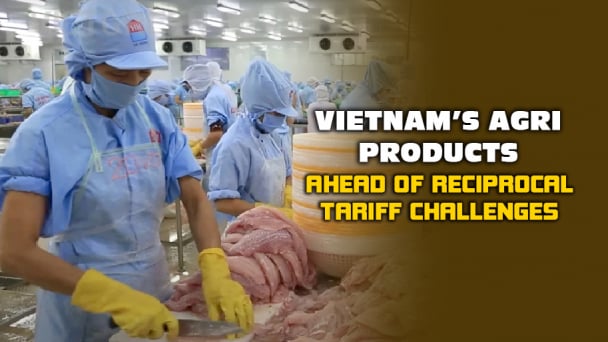
(VAN) Reciprocal tariffs are exerting pressure on U.S. exports, prompting Vietnamese firms to shift their focus to Muslim markets, Thailand, and Brazil.
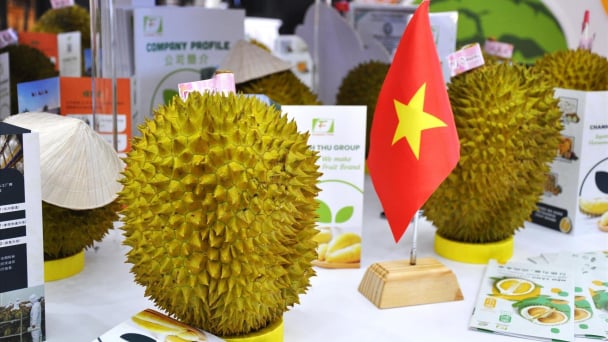
(VAN) A free booth for two years at Xinfadi, Beijing's largest wholesale market, will be allocated to Vietnam's agricultural products.
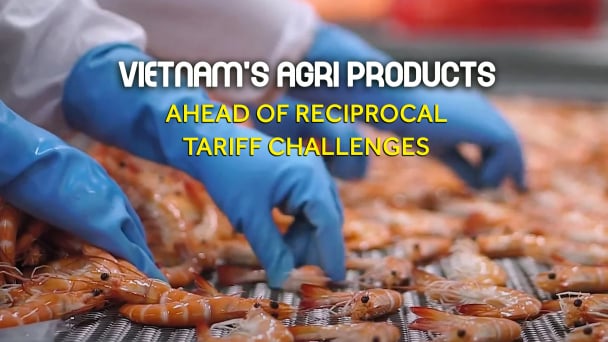
(VAN) Vietnamese shrimp exporters are actively looking for alternative markets and accelerating shipments to the United States in response to the pressure of impending reciprocal tariffs. This is occurring during a temporary tariff suspension.

(VAN) The import-export turnover between Vietnam and Singapore rose amid a trade rebound, with machinery, electrical equipment, and fuels making up the majority of the transaction value.

(VAN) Director General of the General Administration of Customs of China, Ms. Sun Mai Jun, has pledged to implement measures that will ease the import process for Vietnamese agricultural products.

(VAN) Although Vietnam is still increasing its coffee exports, the industry is currently in the process of determining market strategies in response to the U.S. imposition of reciprocal tariffs.

(VAN) With rising demand in Muslim-majority countries, Halal certification is becoming a critical passport for Vietnamese agricultural products seeking sustainable market access and consumer trust in the Middle East and Africa.